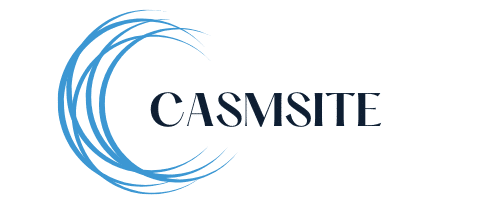casmsite
News
What are the main parameters to take into account when choosing a necklace?
February 3, 2024
When the necklace blends in with your outfit or disappears completely from your collar, it plays virtually no role. Often, the finesse of your look...
Top 10 most popular tattoos
March 30, 2024
Top 10 most popular insect charms
March 23, 2024
Technology
How is big data transforming sports analytics?
January 17, 2024
In the fast-paced world of sports, every second and every play counts. With the stakes higher than ever, teams and athletes are turning to data...
Can virtual reality be used to treat mental health issues?
January 17, 2024
How can gamification enhance workplace productivity?
January 17, 2024
Business
cooking
What are the best tips for juicing and smoothie making?
January 17, 2024
When it comes to juicing and smoothie making, the process isn’t simply about throwing fruits and vegetables into a blender or juicer and hoping for...
How to bake moist banana bread every time?
January 17, 2024
How to make a classic new york cheesecake?
January 17, 2024
Woman/fashion
The best tips for wearing a brooch in modern ways
January 17, 2024
It’s no secret that the fashion world loves to revisit past trends and give them a meritorious makeover. One such trend that is experiencing a...
How to pair bold colored pants with neutral tops
January 17, 2024
In the vast universe of fashion, color plays a pivotal role. It can elevate a simple outfit into a stylish statement, and can transform an...
The art of wearing a sheath dress for different occasions
January 17, 2024
The sheath dress, an iconic piece of fashion, has carved a unique place in the closets of women across the globe. This dress style, with...
Sports
The role of technology in refereeing and sports judging
January 17, 2024
From the clamorous stadiums of football to the serene courts of tennis, sports have become a global phenomenon. A key element in these sporting contests...
How do extreme weather conditions affect sports strategy and safety?
January 17, 2024
The psychology of sports fandom: beyond just watching the game
January 17, 2024
Home&living
What are the best ways to incorporate vintage pieces into modern decor?
January 17, 2024
The charm of vintage pieces is undeniable. Each piece tells a story, bears the marks of its age, and brings a unique aesthetic that cannot...
How can you create a peaceful retreat in a city apartment?
January 17, 2024
What are the best tips for designing a low-maintenance front yard?
January 17, 2024
Health
How to create a healthy and sustainable diet plan?
January 17, 2024
Today’s society is witnessing a growing interest in the nexus between health, nutrition, and sustainability. Leafing through the numerous diet plans and health practices available,...
How to maintain strong bones in aging?
January 17, 2024
How to maintain a healthy weight during pregnancy?
January 17, 2024
Pets
Can birds learn to speak multiple languages?
January 17, 2024
Birds are fascinating creatures that have captivated the interest of humans for centuries. Their vocal abilities, particularly their capacity to mimic human speech, have been...
Can pets suffer from seasonal affective disorder (sad)?
January 17, 2024
How to deal with a pet that steals food?
January 17, 2024
Copyright 2024.
